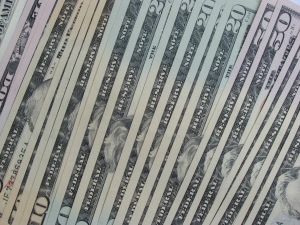 In this article we provide a brief discussion of patent licensing as an attractive way for inventors to monetize their patents.
In this article we provide a brief discussion of patent licensing as an attractive way for inventors to monetize their patents.
You have created a new invention and you have spent a lot time and a considerable amount money obtaining a patent for it. What’s next?
Well, you probably want to be rewarded for the many hours you spent developing your invention, and you would most likely want to recoup the thousands of dollars you spent obtaining the patent.
The solution then is to monetize or make money from your patent and the underlying invention.
Monetizing Your Patent
There are three basic ways you can monetize your patent:
- By entering into some entrepreneurial venture involving your invention. For example, you may manufacture and market your invention, or employ it in some service related business.
- By assigning or selling your patent and underlying invention to a third party for a financial gain.
- By collecting royalties from patent licensing.
The decision ultimately depend on how you want to make money. For those who are business-minded, the first option may be the most appealing. With this option the potential financial rewards are greater, but so too are the risks.
For others, however, the second and third options may be the easiest and most economical routes to monetizing their patent. With these two options, someone else assumes all of the business risk, while you, the inventor, get paid comfortably just for being an inventor. The rest of this article will focus on the last of these options, patent licensing.
Patent Licensing
Besides a patent holders ability to exclusively manufacture and offer for sale his invention, the most common way to monetize a patent is through patent licensing.
A patent license is an agreement in which the patent holder, called a “licensor“, grants to a third party, a “licensee“, the right to commercially exploit a patent and the underlying invention. A patent license establishes the conditions under which a licensee may exploit the patent and the obligations with which the licensee must comply. Like other contracts, a breach of the obligations set forth in a patent license may result in the termination of the agreement and the return of the exploitable rights to the licensor. Thus, a patent license is revocable. This is in contrast to the second option above, where the patent holder sells or assigns his exploitation rights irrevocably.
In return for granting the patent license, the licensor receives a series of payments over a specified period of time, usually the life of the licensing agreement. These payments are called “royalties”. A licensee’s failure to pay royalties would be considered a breach of obligations and will usually result in the termination of the license agreement. If this occurs, the licensee loses his right to exploit the patent and the licensor may choose to license the rights to someone else. This acts as an excellent deterrent against the breach of royalty obligations and makes licensing particular attractive to patent holders.
Advantages of Patent Licensing
Some of the other advantages of patent licensing include:
– Low cost. Typically the only costs incurred when licensing a patent is for presenting and marketing to potential licensees and negotiating deal.
– Transference of risk. The licensee assumes all of the business risk.
– Freedom. An inventor is free to pursue other ideas while still profiting from his invention.
Disadvantages of Patent Licensing
A couple of the perceived disadvantages of patent licensing are as follows:
– Low rate of return. Royalties typically range from 2% to 10% of the net revenues. Compared to the potential rewards from entrepreneurial endeavors, this may seem miniscule.
– Risk of bad deals: A bad licensing deal can tie up your patent for an extended period of time and may result in expensive legal battles over royalties.
That being said, the route you take to monetize your patent should depend on your personal desires, resources and know-how. If you are simply an inventor and do not possess the the means to finance an entrepreneurial endeavor or the business acumen to make it succeed; or you simply wish to receive an income stream from the exploitation of your patent, without bearing any of the business risks, patent licensing may be your best option.

Leave a Reply